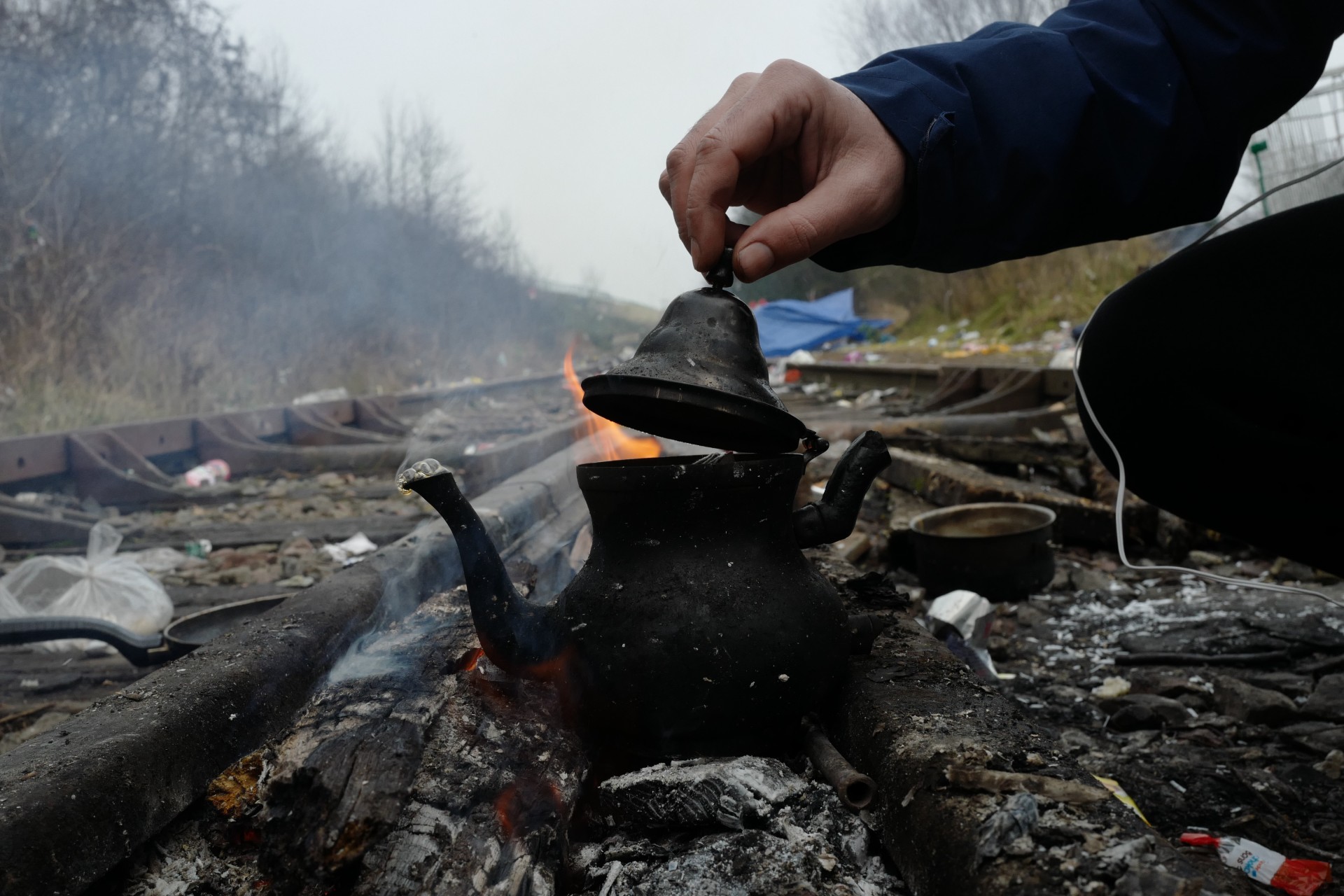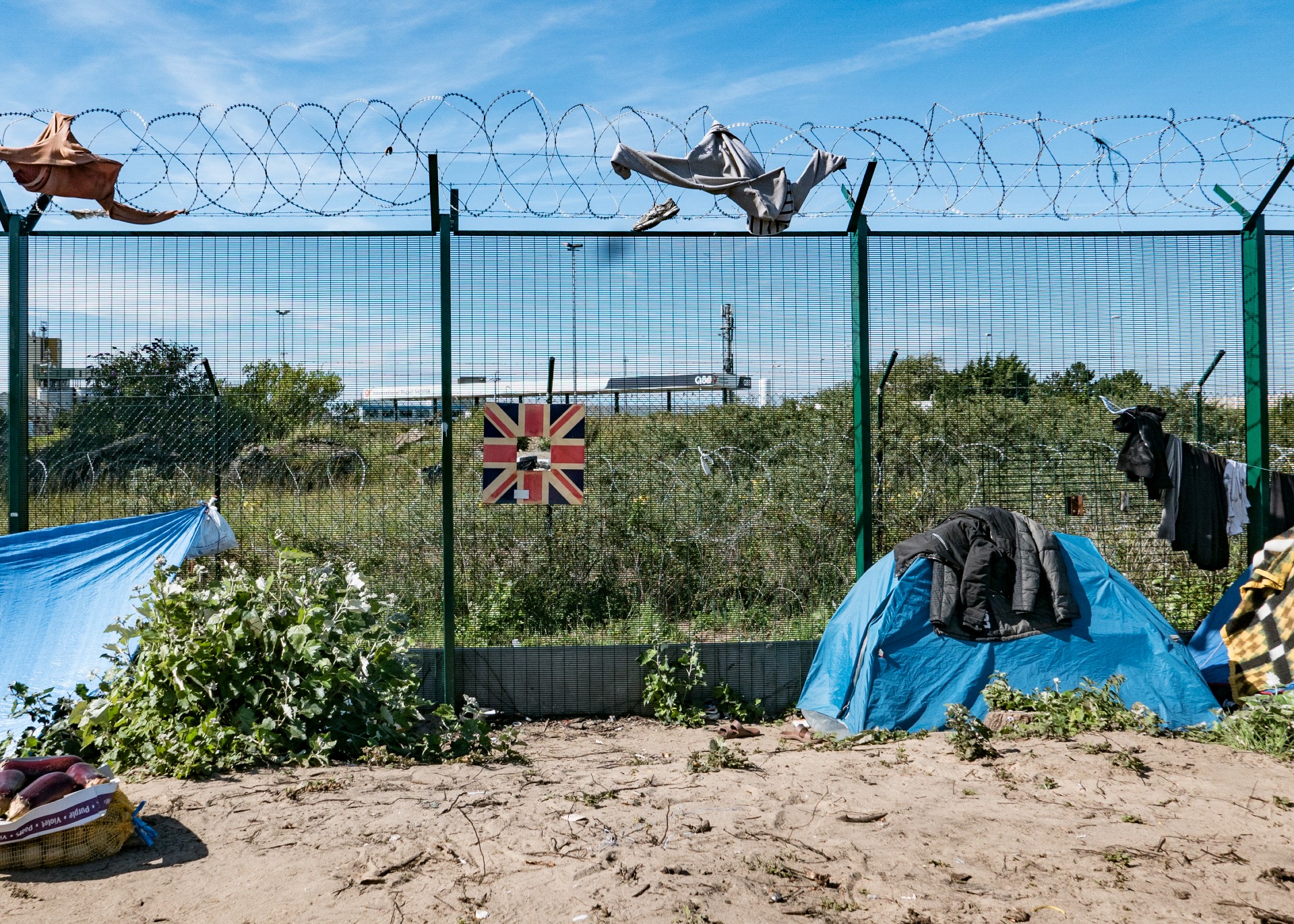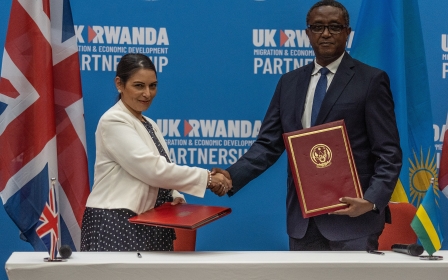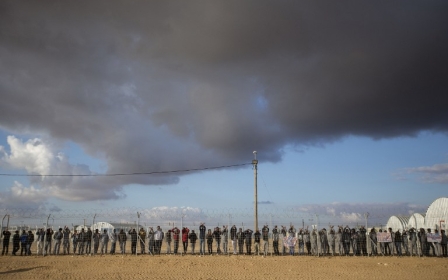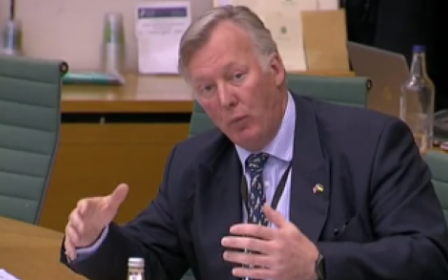UK Rwanda plan met with fear and determination in Calais camps
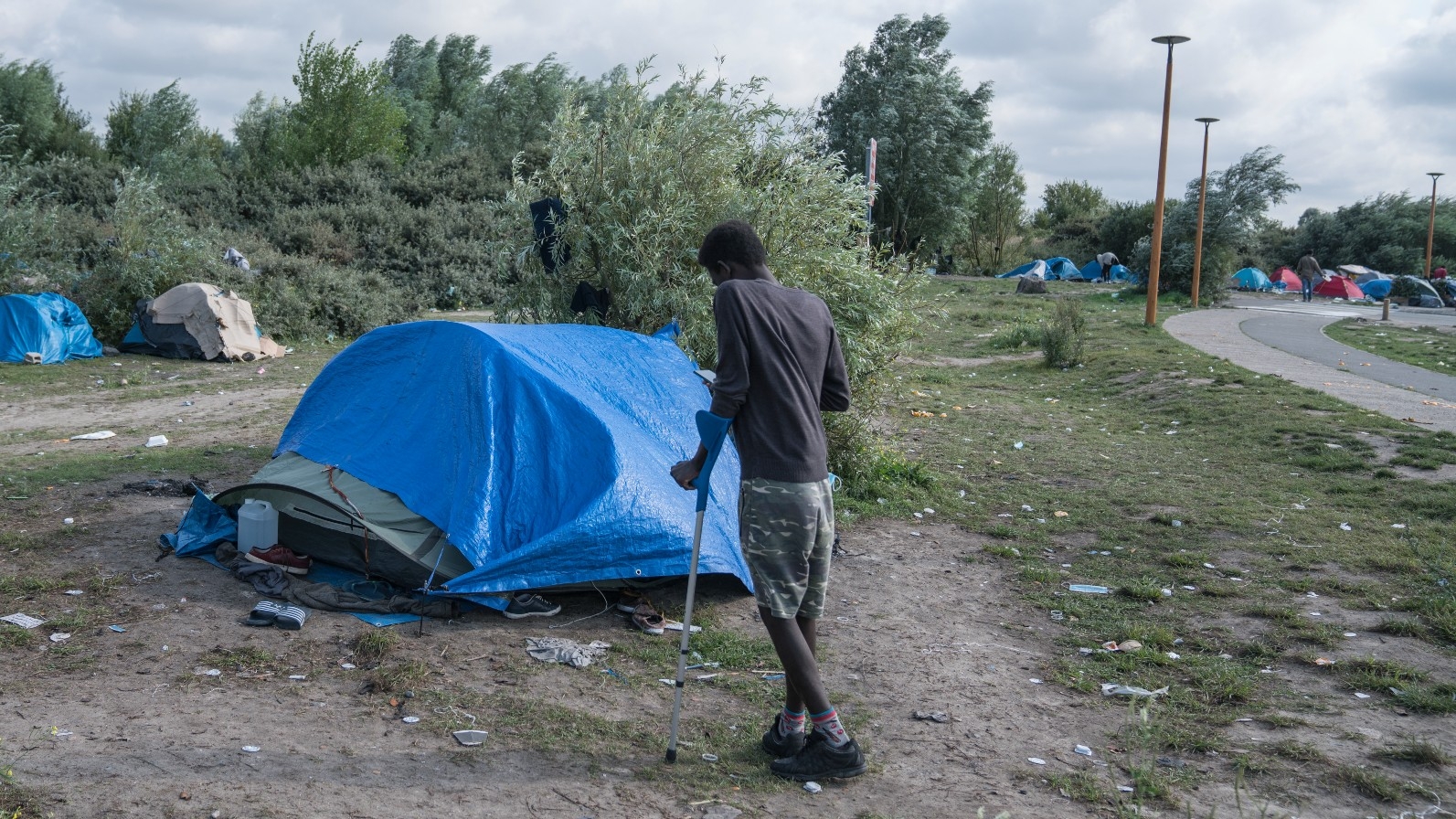
Gathered beside a generator charging their phones, a group of Sudanese men near a makeshift camp in a field close to Calais catch up with each other, and with friends and family at home.
One subject is repeatedly coming up, says Mustafa*, a 22-year-old from Sudan's Nuba mountains. "People are talking a lot about Rwanda."
Mustafa and the other Sudanese men using the generator, provided by a local refugee charity, are in Calais, at the northeastern tip of France, seeking passage to Britain, a dangerous trip attempted by people in the back of lorries or in small rubber dinghies on the choppy seas of the English Channel.
More than 2,500 people have crossed the Channel this year. Escaping war, persecution and hardship, they have travelled for months, even years, hoping to reach the UK. Yet, if the British government has its way, refugees and migrants arriving on British shores may soon find themselves transported 6,000km back to Africa.
New MEE newsletter: Jerusalem Dispatch
Sign up to get the latest insights and analysis on Israel-Palestine, alongside Turkey Unpacked and other MEE newsletters
Last week, the British government announced plans to send adults who arrive without authorisation to Rwanda, a plan that has been condemned as immoral, unworkable and quite possibly illegal.
The UK last year flirted with the idea of pushbacks - a widely condemned practice used in the Mediterranean, whereby boats are pushed into the waters of another country - but is now pursuing the equally controversial Rwanda scheme, which is yet to pass into law.
Mustafa fled conflict in Sudan three years ago. Some of his family were killed in the fighting; he has no idea if the rest are still alive. With such horrors behind him, he says neither he nor his friends have changed their minds about trying to cross the Channel, despite the chilling news about the Rwanda scheme.
“I ran away from Africa," he told Middle East Eye. "Why would they send me back there?”
Pressure in Calais
Amira, a 28-year-old Sudanese woman born and raised in Tripoli, Libya, who now has political asylum in France and lives in Calais, volunteers as an Arabic-French interpreter with the displaced people living in the town.
“Everyone’s asking about Rwanda," she told MEE.
Around 2,000 or so displaced people currently live in Calais and its surroundings, beside disused warehouses, in woodland or under bridges in town.
'I ran away from Africa. Why would they send me back there?'
- Mustafa, Sudanese refugee
NGOs - some of which have struggled for funding recently, since high-profile refugee aid group Choose Love pulled out of Calais - do what they can to give people legal advice, food and shelter.
But police officers regularly raid living spaces, seizing belongings and destroying or confiscating tents - 505 in March alone, according to Human Rights Observers.
Local legislation prevents NGOs from distributing food and water in certain spots, while authorities have dug trenches and used boulders and sandbanks to keep aid groups as far from the various makeshift camps as possible.
In March, the Calais prefect, Louis Le Franc, was condemned for illegally demolishing a camp that was home to 800 people in 2020. The case goes to a hearing in May.
"We hope the government will change its practices in Calais," Francois Guennoc, head of the NGO L’auberge des Migrants, said at the time. "We're not extremely optimistic."
‘We just want to get to the UK’
"We don’t have a solution here in France,” Mark, a 23-year-old from South Sudan’s capital city, Juba, told MEE.
With no phone or access to the internet, Mark has only heard about the Rwanda plan by word of mouth. He still intends to cross over to Britain.
"We just want to get to the UK," said Musab, an 18-year-old from Darfur, who spent two years in Libya after leaving his home and was twice thrown into Libya’s notorious detention centres.
Asked about whether he was worried about the Rwanda situation, he replied: “I care too much, very bad… but what can you do? If they want to send me to Rwanda, I’ll come back here.”
*Names have been changed to protect people’s identities.
Middle East Eye delivers independent and unrivalled coverage and analysis of the Middle East, North Africa and beyond. To learn more about republishing this content and the associated fees, please fill out this form. More about MEE can be found here.


